Blue Poppy Seeds: Unlock Their Culinary Magic
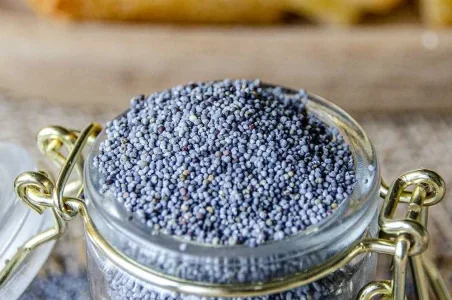
Blue poppy seeds are tiny yet powerful ingredients. They hold a unique place in cooking and health.
Blue poppy seeds are known for their distinct taste and texture. They add a nutty flavor to dishes, making them a popular choice in various cuisines. These small seeds are packed with nutrients, including calcium, magnesium, and fiber. Their vibrant blue color makes them visually appealing as well.
Whether sprinkled on pastries or added to salad dressings, blue poppy seeds enhance both the flavor and nutritional value of meals. Explore the world of blue poppy seeds and discover how they can elevate your culinary creations and contribute to a healthier lifestyle. Dive in to learn more about their uses, benefits, and how to incorporate them into your daily diet.
Introduction To Blue Poppy Seeds
Blue poppy seeds come from the poppy plant. This plant grows in many countries. People have used these seeds for a long time. They are popular in many old recipes. Ancient people knew their special taste. Today, many still love them for their unique flavor. They add a special touch to dishes. You can find them in breads, cakes, and more.
Blue poppy seeds are small but full of nutrients. They have fiber, calcium, and iron. These seeds are also a good source of healthy fats. Eating them can help your body stay strong. They are tiny but pack a punch. Many people use them for their health benefits. Adding them to your diet can be smart and tasty.
Culinary Uses Of Blue Poppy Seeds
Blue poppy seeds are a favorite in baking. They add a crunchy texture to bread and cakes. Many bakers love their nutty flavor. Sprinkle them on muffins for a tasty twist. Mix them into dough for a unique taste. They are also great in lemon poppy seed cakes.
Blue poppy seeds can enhance many dishes. Use them in salad dressings for a rich flavor. Add them to sauces for a textured feel. They are also good in pasta dishes. Sprinkle on top of roasted vegetables for a nutty crunch. These seeds make any dish special.
Flavor Profile And Aromatic Qualities
Blue poppy seeds have a unique flavor. They taste nutty and sweet. Some say they have a hint of spice. Others taste earthiness in them. Their flavor is subtle but distinct. Not too strong. Not too mild. Perfect for many dishes. Great for baking. Delicious in salads. Adds a special touch to meals.
These seeds have a gentle aroma. Smells fresh and clean. Some notice a slight woody scent. Others sense a mild floral fragrance. The aroma is not overpowering. Just enough to enhance dishes. Makes food inviting. Gives a pleasant smell. Feels warm and comforting. Perfect for cooking.

Credit: www.terraspicemarketplace.com
Health Benefits And Considerations
Blue poppy seeds are tiny but packed with important nutrients. They have fiber, which helps your tummy. They also have protein that helps you grow. There are many vitamins and minerals too. These include calcium for strong bones. Iron helps your blood. They also have magnesium which helps your muscles.
Some people can be allergic to poppy seeds. They may get a rash. Or they might feel itchy. Sometimes, they might sneeze a lot. It’s best to try a small amount first. See if your body likes them. If you feel funny, tell an adult. It’s important to be safe. Always listen to your body.
Incorporating Blue Poppy Seeds In Recipes
Blue poppy seeds add a nice crunch to savory dishes. Sprinkle them on salads for extra texture. They work well in stir-fried vegetables. Mix them into sauces for added flavor. Use them in bread dough for a unique taste. They pair well with herbs like rosemary and thyme. Try them in pasta dishes for a pop of flavor. Their nutty taste complements cheese dishes.
Blue poppy seeds make sweets tastier. Add them to muffins for a nutty crunch. They blend well in cakes and cookies. Mix them into pancake batter for a special treat. They enhance the flavor of lemon desserts. Use them in frosting for extra texture. Their mild taste works well in fruit salads. Try sprinkling on yogurt for a tasty snack.
Storage And Shelf Life
Store blue poppy seeds in a cool, dry place. Use airtight containers to keep them fresh. Keep the seeds away from sunlight. This helps them last longer. The fridge is a good place for storing seeds. It keeps them cool.
You can also freeze the seeds. Freezing keeps them fresh for a longer time. Always label the containers with dates. This helps track their age. Check seeds regularly for freshness.
Spoiled seeds smell bad. They may look clumpy or oily. Fresh seeds have a mild smell. Their taste is nutty and pleasant. If the seeds taste bitter, they might be spoiled. Check for mold or unusual spots. Moldy seeds are not safe to eat.
Always check seeds before using. If seeds are spoiled, throw them away. Spoiled seeds can make you sick.
Cultural Significance And Traditions
Blue poppy seeds are small but packed with flavor. Many countries use them in their recipes. In India, they make a thick paste. This paste adds taste to curries. Europe loves them in pastries. They sprinkle them on bread for a nutty crunch.
In the Middle East, they are mixed in sweets. These seeds bring a special touch. Each culture has its own way. But all agree on their unique flavor. They make dishes memorable and tasty.
Special occasions call for special recipes. Blue poppy seeds are in many festive dishes. In some places, they bake in holiday bread. The seeds add a rich and deep flavor.
Desserts are often topped with them too. They give sweets a nice crunch. During festivals, dishes with these seeds are a must. They make celebrations even more delightful.

Credit: gatherfoodstudio.com
Sourcing And Purchasing Tips
Blue poppy seeds should be clean and free from stones or dust. Check the color. They should be deep blue. Smell the seeds. A fresh scent means good quality. Bite a seed. It should taste nutty and pleasant. Avoid seeds with bitter taste. Packaged seeds should have a clear label. Look for expiry date. Check for certifications like organic or non-GMO. Always buy from a trusted source. This ensures high quality.
Buy from local markets. Try specialty stores for exotic seeds. Online shops offer variety. Read reviews before buying online. Choose stores with good ratings. Compare prices. Sometimes, cheaper is not better. Look for discounts on bulk purchases. Choose sellers with return policies. This protects you if seeds are bad. Inquire about shipping costs. Some stores offer free shipping.
Conclusion And Final Thoughts
Blue poppy seeds are tiny but pack a big flavor. They can turn simple dishes into something special. Baking with these seeds adds a nutty taste. Sprinkle them on top of bread or cakes. It makes them look nice and taste better.
Experimenting in the kitchen is fun with blue poppy seeds. Add them to salads for a crunchy bite. Mix them in yogurt or dressings for a unique twist. Try them in curries or soups for an earthy taste. Be creative. Discover new recipes.
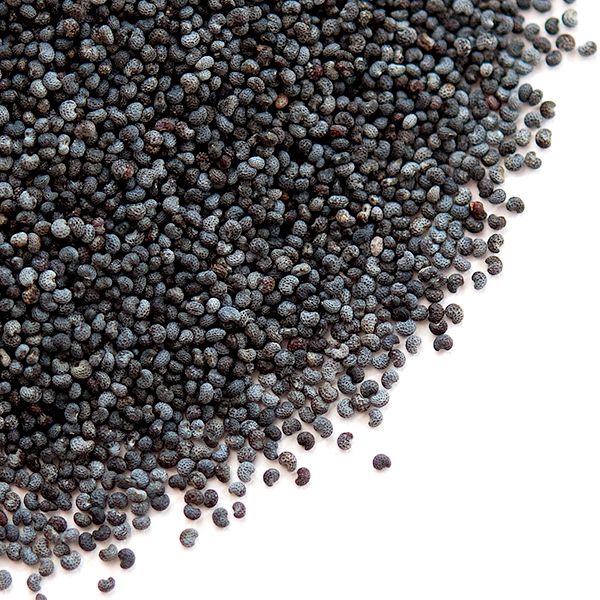
Credit: www.beanilla.com
Frequently Asked Questions
What Is Blue Poppy Seed Used For?
Blue poppy seeds are used in baking, cooking, and salad dressings. They add flavor and texture to dishes. Rich in nutrients, they can enhance health benefits. Popular in pastries and desserts, they are also used for garnishing. Their nutty taste complements various cuisines and recipes.
Can You Grow Blue Poppies?
Yes, you can grow blue poppies. These flowers thrive in cool, moist climates with well-drained soil. Regular watering and partial shade are essential for their growth.
What Is The Difference Between Blue And Black Poppy Seeds?
Blue poppy seeds are milder and often used in European dishes. Black poppy seeds have a stronger flavor and are common in Indian cuisine. Both seeds add texture and nutritional benefits to dishes.
Why Is It Illegal To Grow Poppies?
Growing poppies is illegal because they contain opiates used to produce narcotics like heroin. These substances are controlled by law.
Conclusion
Blue poppy seeds can add flavor to your dishes. They are versatile. You can sprinkle them on salads, bake them in bread, or mix them into dressings. Their nutty taste enhances the overall experience. Plus, they have health benefits. Rich in nutrients, they support well-being.
So, next time you cook, consider using blue poppy seeds. They may become your new favorite ingredient. Enjoy experimenting with this unique, tasty addition!
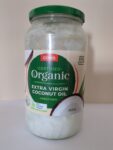
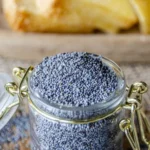

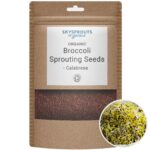
Leave a Reply